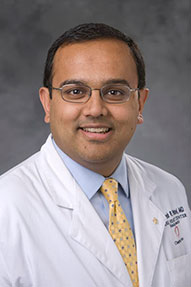
A group of cardiovascular researchers have formed a consortium—Academic Research Organization Consortium for Continuing Evaluation of Scientific Studies-Cardiovascular (ACCESS CV)—to develop strategies for sharing patient-level data. This follows recent proposals by the Institute of Medicine (now the National Academy of Medicine) and the International Committee of Medical Journal Editors (ICMJE) for data sharing.
Writing in The New England Journal of Medicine, Manesh R Patel (Division of Cardiology, Duke University Medical Center and Duke Clinical Research Institute, Durham, USA) and others report that they “fully support” the concept of sharing patient-level data because they see it as “fundamental” to achieving the goal of disseminating new insights gained through research. They add that the benefits of such data sharing include “confirmation of results, opportunities for new discoveries from secondary analyses, and eventually the possibility of aggregation of data sets from related studies to facilitate high quality systematic meta-analyses”. However, the authors state that the potential benefits of data sharing need to be balanced against “potentially unintended consequences” such as an increased risk of type I errors in studies that use shared data or loss of patient privacy.
To address these challenges, Patel et al propose a “secure method” for sharing patient data “that balances the legitimate desire of the scientific community for data access with responsibility to ensure high-quality analyses and protection of patients’ expectation of privacy”. For example, they suggest researchers who were not involved with a trial’s design or conduct send requests for data to the trial’s publications committee and these requests can then start to be considered 24 months after the publication of the trial. “The 24-month period was chosen to allow time to build secure access to the database and to allow trial investigators to perform their own preplanned secondary analyses,” Patel et al write. However, they comment that “when needed” the consortium would provide a “mechanism for validating the primary results”—using patient-level data—within 12 months of a trial being published.
In the same issue of The New England Journal of Medicine, another consortium—the International Consortium of Investigators for Fairness in Trial Data Sharing—outline their proposal for data sharing. Similar to ACCESS CV, they suggest a wait of two years as “a minimum” before patient-level data are shared. Furthermore, consortium authors Philip J Devereaux (Department of Clinical Epidemiology and Biostatistics Department of Medicine, McMaster University, Hamilton, Canada) and others write that there should be “an additional six months for every year it took to complete the trial, with a maximum of five years before trial data are made available to those who were not involved in the trial”.
These suggested timeframes are vastly different from that suggested by the ICMJE, who published their proposal for data sharing in Annals of Internal Medicine in January this year. In that proposal, Darren B Taichman (executive deputy editor, Annals of Internal Medicine) and others suggest that authors should be required to make their data available “no later than six months” after publication. However Devereaux et al claim that six months is “insufficient” for the original researchers to “adequately comprehend the data and publish a few articles”. They argue once data are shared, the original investigators are “effectively competing with people who have not contributed to the substantial efforts and often years of work required to conduct the trial”.
According to Patel et al, requests for patient-level data from a trial should be considered by “a learned review group” comprising of ACCESS CV members who were not involved in the trial, the trial’s principal investigator, a trial statistician and a member of the data and safety monitoring board. They add that all requests and subsequent decisions would be posted on an ACCESS CV web portal “ideally within 60 days”. The authors also outline key steps to “ensure a systematic” approach to requesting access to patient-level data, which includes requesting researcher giving details of their publication plans and adhering to data-use agreements for planned analyses. Such an approach, Patel et al comment, “would avert the problem of multiple groups producing the same analysis and would require investigators to have prespecified analysis plans”.
However, also writing in The New England Journal of Medicine, Harlan M Krumholz (Section of Cardiovascular Medicine, Department of Internal Medicine, Yale School of Medicine, New Haven, USA) and others—representing the Yale Open Data Access (YODA) Project—suggest a different approach for managing requests for accessing patient-level data. They advocate using a “trusted intermediary” approach in which “an independent partner provides support account, accountability, fairness and transparency”. They add that through such an approach, YODA Project scientists “conduct a blinded review of proposals to ensure that the scientific purpose is clearly described and that the data requested will be used to create or materially enhance generalisable scientific or medical knowledge”.
Concluding their proposal, Patel et al write: “We believe our plans are aligned with the IOM’s recommendations and the ICMJE’s proposal and that they will ultimately maximise the impact of clinical trials on human health around the world.”
Regarding the different views expressed about data sharing in The New England Journal of Medicine, Patel says: “I believe that different views of data sharing are natural and that groups that develop systems that engage and allow the broad research communities will demonstrate the value of sharing data”









